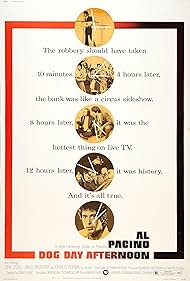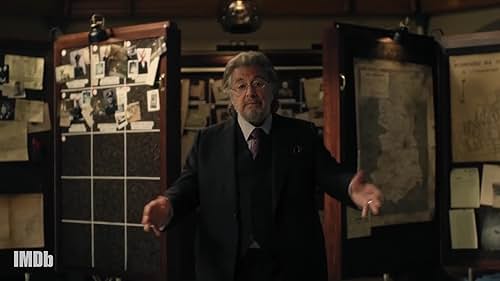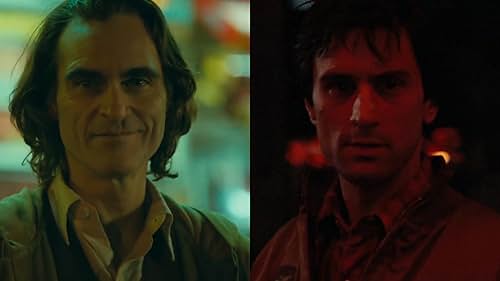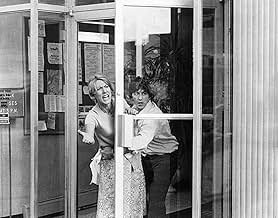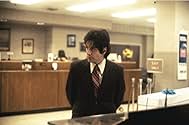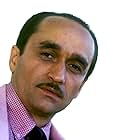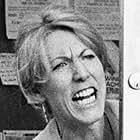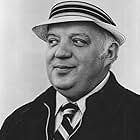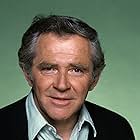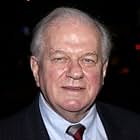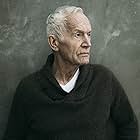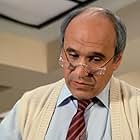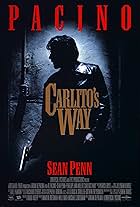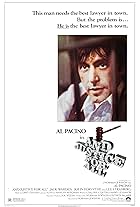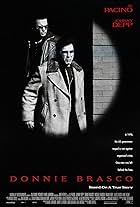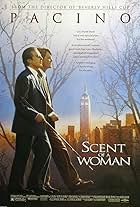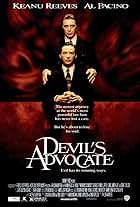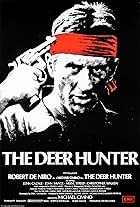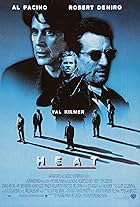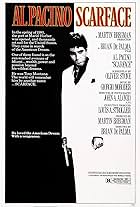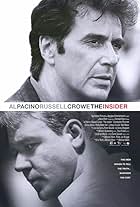Three amateur robbers plan to hold up a Brooklyn bank. A nice, simple robbery: Walk in, take the money, and run. Unfortunately, the supposedly uncomplicated heist suddenly becomes a bizarre ... Read allThree amateur robbers plan to hold up a Brooklyn bank. A nice, simple robbery: Walk in, take the money, and run. Unfortunately, the supposedly uncomplicated heist suddenly becomes a bizarre nightmare as everything that could go wrong does.Three amateur robbers plan to hold up a Brooklyn bank. A nice, simple robbery: Walk in, take the money, and run. Unfortunately, the supposedly uncomplicated heist suddenly becomes a bizarre nightmare as everything that could go wrong does.
- Won 1 Oscar
- 14 wins & 20 nominations total
Storyline
Did you know
- TriviaAlthough he had initially agreed to play the part of Sonny, Al Pacino told Sidney Lumet near the start of production that he couldn't play it. Pacino had just completed production on The Godfather Part II (1974) and was physically exhausted and depressed after the shoot. With his reliance on the Method, Pacino didn't relish the thought of working himself up to a state of near hysteria every day. Lumet unhappily accepted the actor's decision and dispatched the script to Dustin Hoffman. Pacino reportedly changed his mind when he heard that his rival was being considered for the role.
- GoofsIn 1972, NYC police squad cars were dark green and white, not blue and white which debuted about two years later.
- Crazy creditsOpening credits prologue: What you are about to see is true - It happened in Brooklyn, New York on August 22, 1972.
- Alternate versionsRecent DVD release replaces the old Warner Bros. logo at the beginning with the newer WB/AOL logo.
- ConnectionsFeatured in Lumet: Film Maker (1975)
Featured review
By the time Sidney Lumet's "Dog Day Afternoon" came around he had already learned to let Al Pacino loose. Forget the holdbacks of "Serpico"; here we get a glimpse into the real Al, the actor who would bring Tony Montana to life in the years to come and the same man who provided Michael Corleone with such heartfelt warmth that was lacking in some of his lesser characters.
There's essentially the Al Pacino as an actor and the Al Pacino as a character, and here he's the character, and it works splendidly. Al Pacino the actor comes into play when he is given a recycled script and a talentless director, which has been happening a lot lately, although fortunately his comparison, De Niro, has been lucky enough to generally avoid these blunders of older-age film-making.
This is based on a true story, like "Serpico," only it's better and more involving. It connects with the audience more than "Serpico" because it doesn't jump through the same old hoops; it goes for the long trek and comes off better than it would have had the team behind it been lazy. The clichés are gone and the originality creeps in early on. Watch Pacino indulge himself in character and let the plot sink in. It's more touching than it seems at first.
Pacino is Sonny Wortzik, a Brooklyn man who takes a bank hostage in order to pay for his "wife's" operation. The wife is actually Leon Shermer (Chris Sarandon who was Oscar-nominated for this, his first role in a mainstream film), Sonny's gay lover who doesn't have the money for a sex operation.
The bank robbery was going to be what one of classic cinema's greatest bad guys once described as a quick "in and out," but Sonny gets held up inside the bank and soon he's all over the news and police are standing outside the building with guns drawn. It's like Denzel's movie only better and more original. Oh, and true. This one actually happened and we can tell.
Sonny's partner in crime, Sal (John Cazale), is worried that he'll be treated as a homosexual by the media outside. His fretting is comic relief and one of the connections between the film and the audience. Charles Durning is the frustrated cop handling the situation. His performance is as subtly convincing as Cavale's.
Pacino's performance is exceedingly excellent, manic and energetic. He'd display this same talent in "Scarface" again eight years later; only he would be bashed by the critics for going over-the-top. (Although they really just had problems with the excessive profanity and violence, just like Mel Gibson's "The Passion of the Christ" will soon become a well-known classic and people will laugh when they hear that someone once called it the most violent film ever made.)
There's also one of the best scenes of all time in this movie that rivals Montana's Last Stand in "Scarface" or the Baptism Scene in "The Godfather," which involves Sonny speaking on the phone to his "wife," carefully concealing his motive from any listeners nearby. Watch Pacino delve into character here and you're immediately hooked. We like his character because he seems real and Pacino makes him real, and that's why this will go down as one of the best tour de force performances of all time.
Is this Hollywood trying to ease our culture onto homosexuality and sex change operations? Is Hollywood trying to gradually introduce us to gay characters in the hope that the uptight American families will be increasingly invaded by the images of gay men? No. This is Hollywood showing us a true story, regardless of the homosexuality. Pacino could be playing a frustrated postal worker and it would still work because it all settles down to the fact that the suspense and dramatics of the movie affect us, not the background of its characters.
Sarandon's Oscar nomination was more than worthy; here he displays the smarmy talent that would shine through in his characters in the years to come. Prince Humperdink from "The Princess Bride" is equally memorable but less realistic. Here he seems more real, which is good for this film and would have been quite bad for "Bride." We don't like real characters in fantasy tales, do we?
Lumet, who ruined "Serpico" with his bad editing, out-of-place music, clichéd dialogue/events and unnecessary scenes, directs "Dog Day Afternoon" with style and flair and good pacing and a surprisingly heartfelt sense of emotion and care. This isn't exactly a good example of a perfect motion picture but it's pretty close.
There's essentially the Al Pacino as an actor and the Al Pacino as a character, and here he's the character, and it works splendidly. Al Pacino the actor comes into play when he is given a recycled script and a talentless director, which has been happening a lot lately, although fortunately his comparison, De Niro, has been lucky enough to generally avoid these blunders of older-age film-making.
This is based on a true story, like "Serpico," only it's better and more involving. It connects with the audience more than "Serpico" because it doesn't jump through the same old hoops; it goes for the long trek and comes off better than it would have had the team behind it been lazy. The clichés are gone and the originality creeps in early on. Watch Pacino indulge himself in character and let the plot sink in. It's more touching than it seems at first.
Pacino is Sonny Wortzik, a Brooklyn man who takes a bank hostage in order to pay for his "wife's" operation. The wife is actually Leon Shermer (Chris Sarandon who was Oscar-nominated for this, his first role in a mainstream film), Sonny's gay lover who doesn't have the money for a sex operation.
The bank robbery was going to be what one of classic cinema's greatest bad guys once described as a quick "in and out," but Sonny gets held up inside the bank and soon he's all over the news and police are standing outside the building with guns drawn. It's like Denzel's movie only better and more original. Oh, and true. This one actually happened and we can tell.
Sonny's partner in crime, Sal (John Cazale), is worried that he'll be treated as a homosexual by the media outside. His fretting is comic relief and one of the connections between the film and the audience. Charles Durning is the frustrated cop handling the situation. His performance is as subtly convincing as Cavale's.
Pacino's performance is exceedingly excellent, manic and energetic. He'd display this same talent in "Scarface" again eight years later; only he would be bashed by the critics for going over-the-top. (Although they really just had problems with the excessive profanity and violence, just like Mel Gibson's "The Passion of the Christ" will soon become a well-known classic and people will laugh when they hear that someone once called it the most violent film ever made.)
There's also one of the best scenes of all time in this movie that rivals Montana's Last Stand in "Scarface" or the Baptism Scene in "The Godfather," which involves Sonny speaking on the phone to his "wife," carefully concealing his motive from any listeners nearby. Watch Pacino delve into character here and you're immediately hooked. We like his character because he seems real and Pacino makes him real, and that's why this will go down as one of the best tour de force performances of all time.
Is this Hollywood trying to ease our culture onto homosexuality and sex change operations? Is Hollywood trying to gradually introduce us to gay characters in the hope that the uptight American families will be increasingly invaded by the images of gay men? No. This is Hollywood showing us a true story, regardless of the homosexuality. Pacino could be playing a frustrated postal worker and it would still work because it all settles down to the fact that the suspense and dramatics of the movie affect us, not the background of its characters.
Sarandon's Oscar nomination was more than worthy; here he displays the smarmy talent that would shine through in his characters in the years to come. Prince Humperdink from "The Princess Bride" is equally memorable but less realistic. Here he seems more real, which is good for this film and would have been quite bad for "Bride." We don't like real characters in fantasy tales, do we?
Lumet, who ruined "Serpico" with his bad editing, out-of-place music, clichéd dialogue/events and unnecessary scenes, directs "Dog Day Afternoon" with style and flair and good pacing and a surprisingly heartfelt sense of emotion and care. This isn't exactly a good example of a perfect motion picture but it's pretty close.
- MovieAddict2016
- Feb 24, 2004
- Permalink
Details
- Release date
- Country of origin
- Official sites
- Language
- Also known as
- Tarde de perros
- Filming locations
- Production companies
- See more company credits at IMDbPro
Box office
- Budget
- $1,800,000 (estimated)
- Gross US & Canada
- $50,000,000
- Gross worldwide
- $50,002,721
Contribute to this page
Suggest an edit or add missing content

